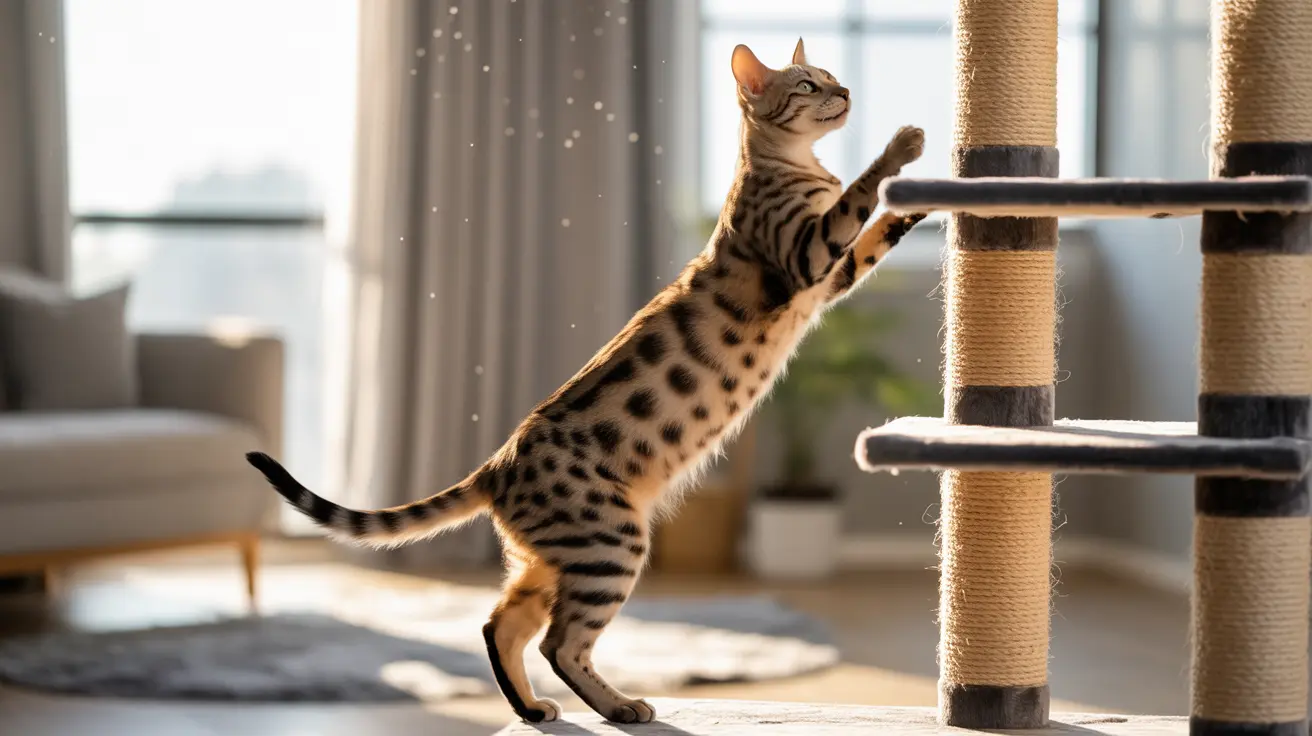Understanding Savannah Cat Temperament
Savannah cats are known for their striking appearance and unique personalities, leading many potential owners to wonder about their friendliness. These exotic hybrid cats, created by crossing African Servals with domestic cats, typically display remarkable social traits that can make them excellent companions when properly understood and cared for.
Their friendly nature often manifests in dog-like behaviors, including following their owners around, playing fetch, and even walking on leashes. However, their sociability and compatibility with others can vary significantly based on their generation and individual temperament.
Generation Matters: How F-Numbers Affect Friendliness
The generation of a Savannah cat, indicated by its F-number, plays a crucial role in determining its friendliness and adaptability to domestic life. F1 Savannahs, being closest to their wild ancestors with approximately 50% Serval DNA, typically require more experienced handlers and may be less suitable for multi-pet households.
F3 to F7 generations are generally considered the sweet spot for friendly, adaptable pets. These later generations retain the breed's distinctive appearance and personality while exhibiting more predictable domestic cat behaviors and increased sociability with humans and other pets.
Social Traits and Family Integration
Savannah cats are highly social animals that form strong bonds with their human families. They're known for their:
- Intense curiosity and intelligence
- Strong desire for interaction and play
- Ability to learn commands and tricks
- Need for regular social engagement
These cats thrive on attention and can become depressed if left alone for extended periods. Many owners report that their Savannahs greet them at the door, participate in family activities, and actively seek out social interaction.
Creating the Right Environment
To nurture a friendly Savannah cat, providing appropriate environmental enrichment is crucial. This includes:
- Vertical spaces for climbing and observation
- Interactive toys and puzzle feeders
- Dedicated play areas
- Safe outdoor enclosures when possible
A well-enriched environment helps prevent behavioral issues and supports the development of positive social behaviors. Regular exercise and mental stimulation are essential for maintaining their friendly disposition.
Training and Socialization Tips
Early and consistent socialization is key to developing a friendly Savannah cat. Start with gentle handling and positive reinforcement from a young age. Expose them to various people, sounds, and experiences in a controlled, positive manner.
Clicker training can be particularly effective with Savannahs, as they respond well to positive reinforcement and enjoy learning new skills. This mental stimulation also helps strengthen the bond between cat and owner.
Frequently Asked Questions
Are Savannah cats generally friendly and sociable with people and other pets?
Yes, Savannah cats are typically very friendly and social, especially in later generations (F3-F7). They form strong bonds with their families and can be quite outgoing, though early generations may be more reserved with strangers and other pets.
How does a Savannah cat's generation (F1 to F7) affect its friendliness and compatibility with dogs?
Generation significantly impacts friendliness and compatibility. F1-F2 Savannahs retain more wild traits and may be challenging to integrate with other pets. F3-F7 generations are generally more domesticated and adaptable, making them better suited for homes with dogs.
What is the best way to introduce a Savannah cat to a dog to ensure they get along well?
Start with slow, controlled introductions using barriers like baby gates. Allow them to become familiar with each other's scents first, then progress to supervised visual contact. Always provide escape routes for the cat and reward calm behavior from both animals.
Which dog breeds or temperaments are most compatible with Savannah cats?
Dogs that are calm, well-trained, and have low prey drives typically work best with Savannah cats. Active breeds that can match their energy levels but know how to be gentle can make good companions.
What special care or enrichment do Savannah cats need to prevent behavioral problems and support friendliness?
Savannah cats need extensive environmental enrichment, including climbing spaces, interactive toys, regular play sessions, and mental stimulation. They also benefit from consistent routines, training, and daily social interaction to maintain their friendly nature.
Conclusion
Savannah cats can indeed be wonderfully friendly and social companions when their needs are properly met. Understanding their generation-specific traits, providing appropriate enrichment, and investing time in training and socialization are key to nurturing their naturally friendly disposition. With proper care and attention, these remarkable cats can become cherished, well-adjusted family members.






